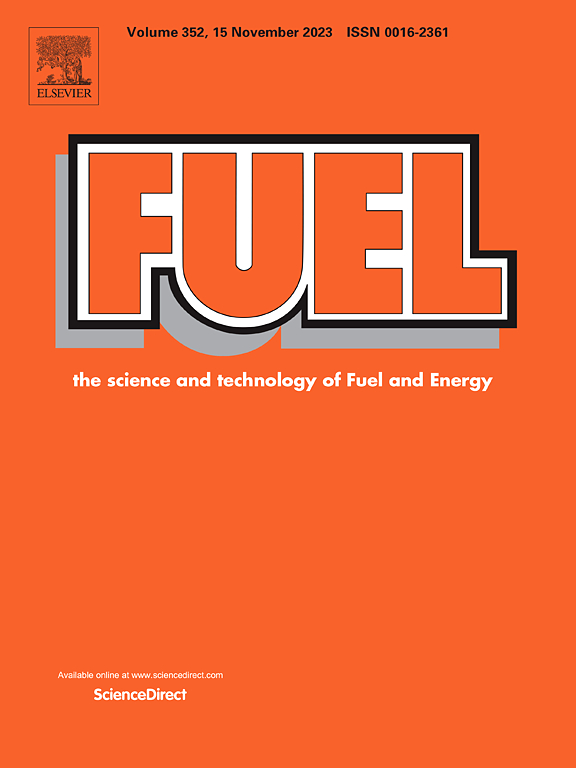Ammonia-fueled internal combustion engines: a review of research trends
IF 7.5
1区 工程技术
Q2 ENERGY & FUELS
引用次数: 0
Abstract
This study conducts a qualitative and quantitative bibliometric analysis of 978 scholarly records retrieved from the Scopus database from 1943 to 2025. The study analyses publication trends, citations, collaborations, bursts, keywords and clusters using VOSviewer (v1.6.19), CiteSpace (v6.3.R1), and Microsoft Excel. The Fuel and International Journal of Hydrogen Energy dominate in terms of both document output and citations. China, the US, and the UK lead in both publication number and citations. The challenges of ammonia combustion, including high ignition energy, low flame speed, and slow reactivity, are currently being addressed using ignition enhancement techniques and dual fuel combustion, which reflect the research hotspots identified through temporal keyword co-occurrence network visualisation. Burst detection analysis of authors indicates that ammonia–diesel dual-fuel engines have emerged as a major research focus in ammonia-fueled internal combustion engines (ICEs), driven by the growing demand for heavy-duty vehicles. Pure ammonia in SI engines needs enhanced ignition including multi-spark, plasma, or laser, high compression ratios, optimised spark timing, and intake boosting to offset poor combustibility. Studies indicate that stable ammonia combustion can be achieved with co-fuel energy shares as low as 5–30%, using a range of fuels including hydrogen, methane, diesel, gasoline, methanol, ethanol, ethers, and biodiesel. Future work on ammonia-fueled engines should focus on advanced control strategies using artificial intelligence (AI), simultaneous emissions reduction, the use of ternary blends to leverage the strengths of individual fuels, optimisation of ammonia energy ratio, ammonia-fed fuel cells for hybrid electric vehicles, the use of nonadditives for enhanced combustion.
氨燃料内燃机:研究趋势综述
本文对1943 ~ 2025年Scopus数据库中978篇学术文献进行了定性和定量分析。该研究使用VOSviewer (v1.6.19)、CiteSpace (v6.3)分析了出版物趋势、引用、合作、爆发、关键词和集群。R1)和Microsoft Excel。燃料和国际氢能杂志在文件输出和引用方面都占主导地位。中国、美国和英国在发表数量和引用次数方面都处于领先地位。目前,利用点火增强技术和双燃料燃烧技术解决了氨燃烧的点火能量高、火焰速度低、反应性慢等问题,这反映了通过时间关键词共现网络可视化识别的研究热点。作者的爆炸检测分析表明,随着重型汽车需求的不断增长,氨柴油双燃料发动机已成为氨燃料内燃机(ICEs)的主要研究热点。在SI发动机中,纯氨需要增强点火功能,包括多火花、等离子或激光、高压缩比、优化的火花定时和进气增压,以抵消较差的可燃性。研究表明,使用包括氢、甲烷、柴油、汽油、甲醇、乙醇、醚和生物柴油在内的一系列燃料,在共燃料能源份额低至5-30%的情况下,可以实现稳定的氨燃烧。氨燃料发动机的未来工作应侧重于使用人工智能(AI)的先进控制策略,同时减少排放,使用三元混合物来利用单个燃料的优势,优化氨能量比,用于混合动力汽车的氨燃料电池,使用非添加剂来增强燃烧。
本文章由计算机程序翻译,如有差异,请以英文原文为准。
求助全文
约1分钟内获得全文
求助全文
来源期刊

Fuel
工程技术-工程:化工
CiteScore
12.80
自引率
20.30%
发文量
3506
审稿时长
64 days
期刊介绍:
The exploration of energy sources remains a critical matter of study. For the past nine decades, fuel has consistently held the forefront in primary research efforts within the field of energy science. This area of investigation encompasses a wide range of subjects, with a particular emphasis on emerging concerns like environmental factors and pollution.
 求助内容:
求助内容: 应助结果提醒方式:
应助结果提醒方式:


